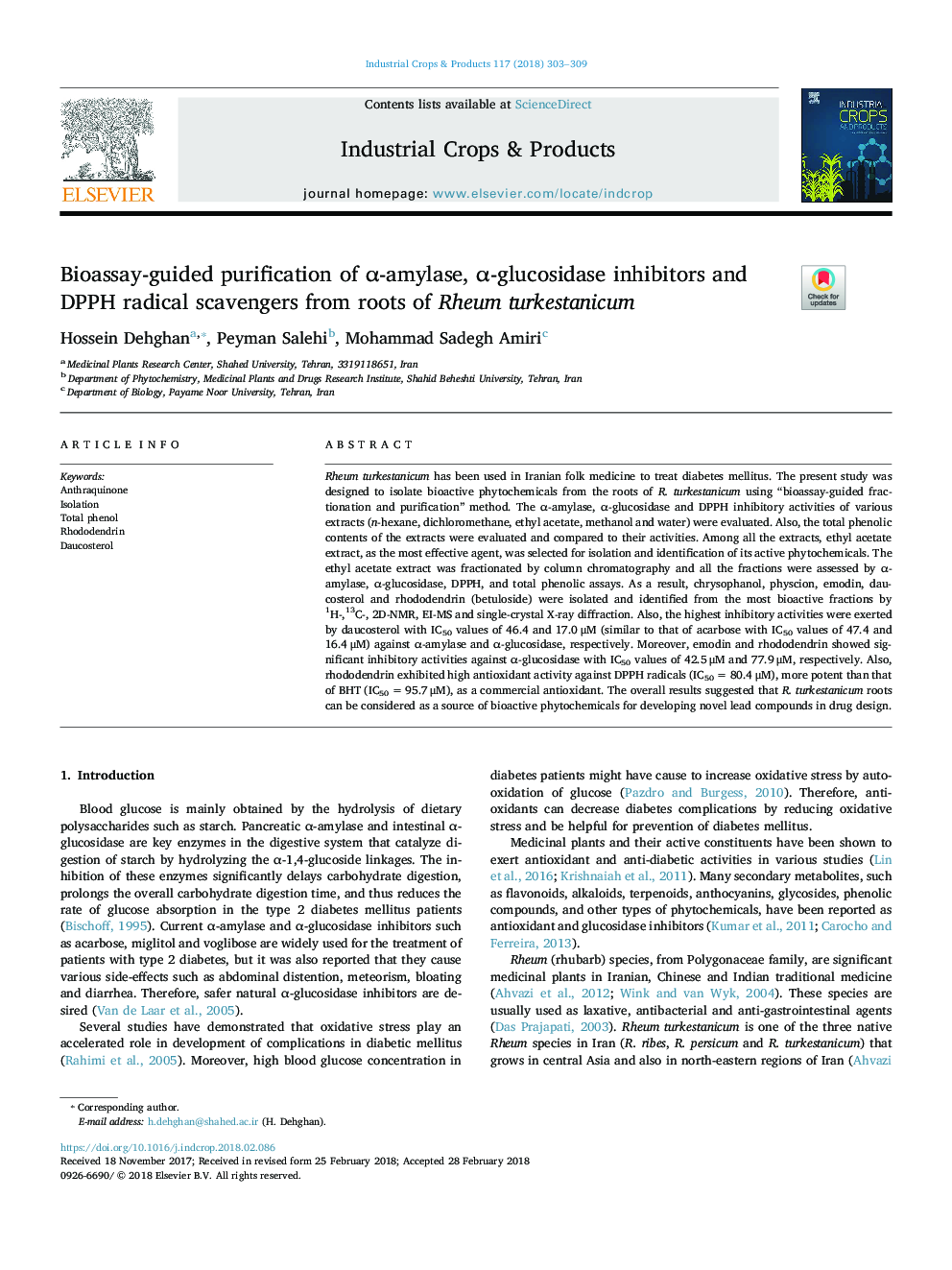| Article ID | Journal | Published Year | Pages | File Type |
|---|---|---|---|---|
| 8880163 | Industrial Crops and Products | 2018 | 7 Pages |
Abstract
Rheum turkestanicum has been used in Iranian folk medicine to treat diabetes mellitus. The present study was designed to isolate bioactive phytochemicals from the roots of R. turkestanicum using “bioassay-guided fractionation and purification” method. The α-amylase, α-glucosidase and DPPH inhibitory activities of various extracts (n-hexane, dichloromethane, ethyl acetate, methanol and water) were evaluated. Also, the total phenolic contents of the extracts were evaluated and compared to their activities. Among all the extracts, ethyl acetate extract, as the most effective agent, was selected for isolation and identification of its active phytochemicals. The ethyl acetate extract was fractionated by column chromatography and all the fractions were assessed by α-amylase, α-glucosidase, DPPH, and total phenolic assays. As a result, chrysophanol, physcion, emodin, daucosterol and rhododendrin (betuloside) were isolated and identified from the most bioactive fractions by 1H-,13C-, 2D-NMR, EI-MS and single-crystal X-ray diffraction. Also, the highest inhibitory activities were exerted by daucosterol with IC50 values of 46.4 and 17.0â¯Î¼M (similar to that of acarbose with IC50 values of 47.4 and 16.4â¯Î¼M) against α-amylase and α-glucosidase, respectively. Moreover, emodin and rhododendrin showed significant inhibitory activities against α-glucosidase with IC50 values of 42.5â¯Î¼M and 77.9â¯Î¼M, respectively. Also, rhododendrin exhibited high antioxidant activity against DPPH radicals (IC50â¯=â¯80.4â¯Î¼M), more potent than that of BHT (IC50â¯=â¯95.7â¯Î¼M), as a commercial antioxidant. The overall results suggested that R. turkestanicum roots can be considered as a source of bioactive phytochemicals for developing novel lead compounds in drug design.
Related Topics
Life Sciences
Agricultural and Biological Sciences
Agronomy and Crop Science
Authors
Hossein Dehghan, Peyman Salehi, Mohammad Sadegh Amiri,
